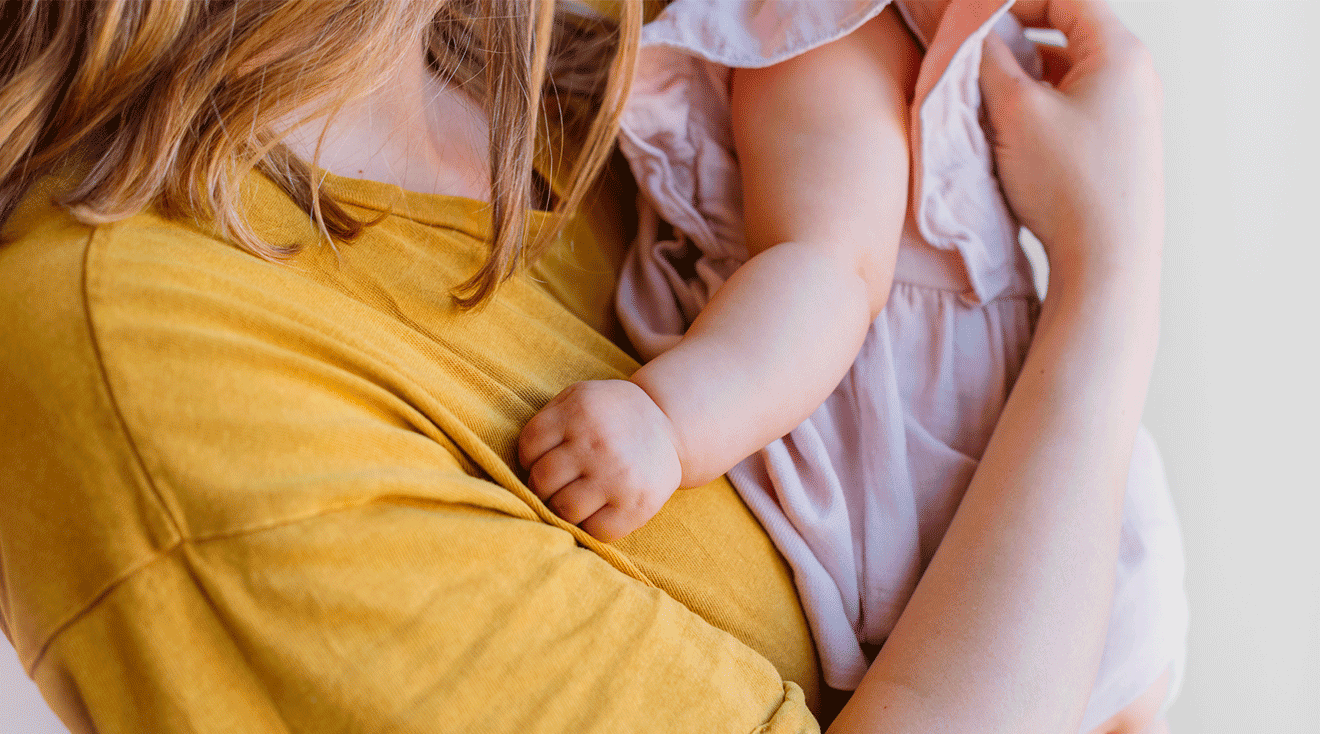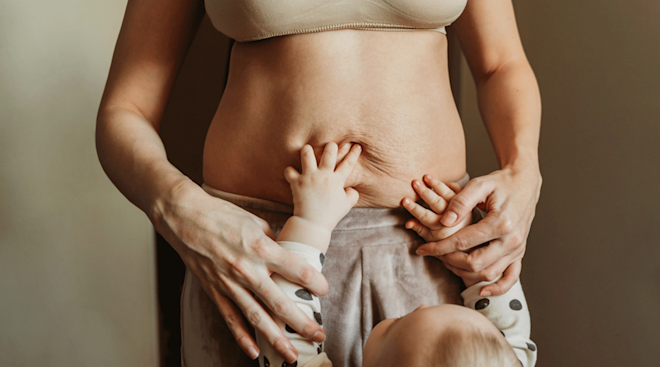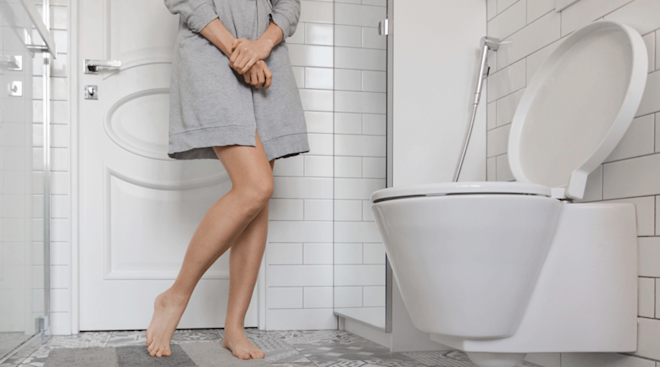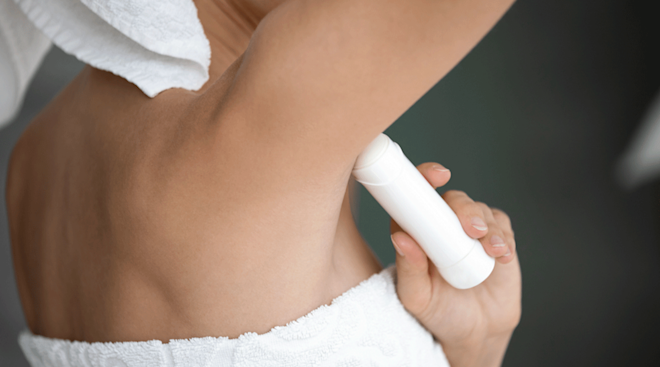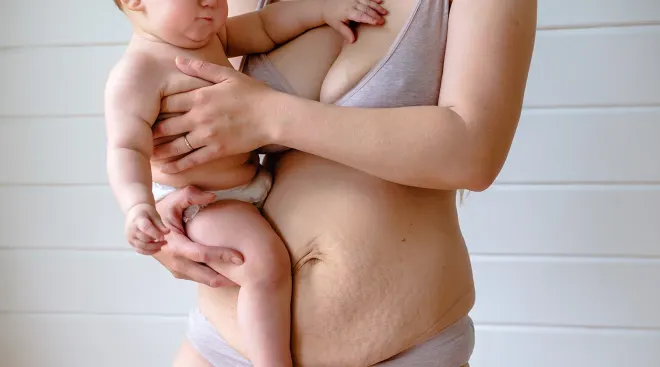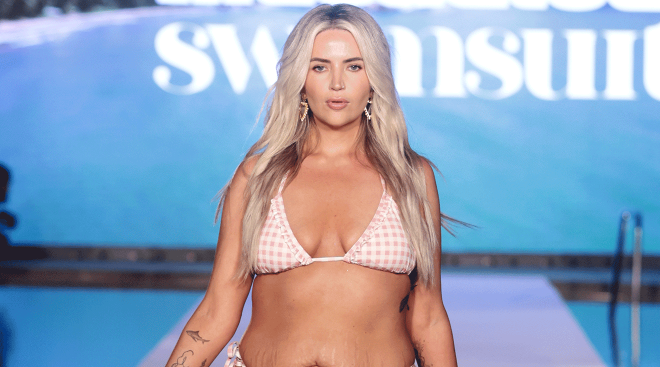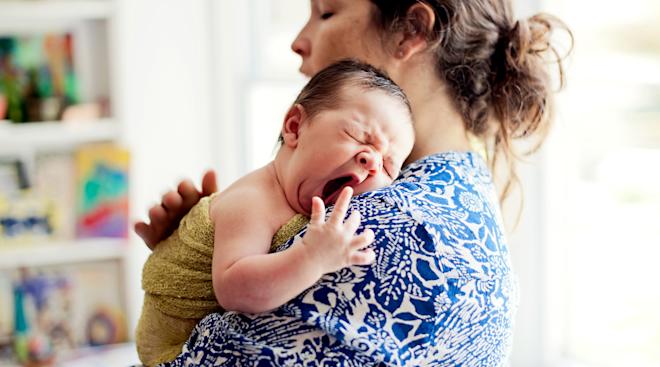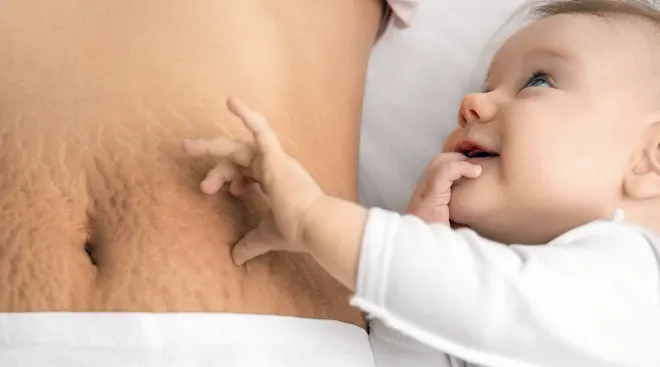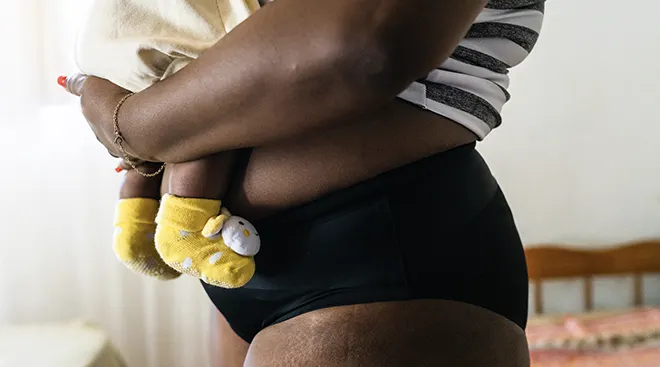9 Ways Motherhood Biologically Changes You
Ask any mom and she’ll likely tell you that the person she is today is a far cry from who she was before she welcomed a little one into the world. Parenthood changes you in so many ways—priorities shift, new stressors emerge and you quickly learn how to function on a lot less sleep than you were used to pre-baby. There’s no doubt that plenty of emotional transformations come along with the territory—along with an identity shift sometimes referred to as matrescence. But there are lots of long-term biological changes that happen as you enter motherhood too.
The body and brain go through incredible changes from the moment you see a positive pregnancy test and continue well after baby is born. From your brain to your breasts to the size of your feet, it’s clear that the phrase “motherhood changes you” is not a hyperbole. Ahead, a few of the physical transformations to expect.
To make room for a growing baby during pregnancy, the body literally rearranges itself internally. Alissa M. Conklin, MD, an ob-gyn at the Indiana University Obstetricians-Gynecologists Coleman Center in Indianapolis, says that in addition to your uterus expanding, your ribs, diaphragm, lungs and kidneys also go through changes when you’re pregnant.
Early in pregnancy, Conklin says your ribs start to flare outward, which can result in a small increase in your chest’s diameter. Additionally, “the progressively enlarging uterus raises the diaphragm 4 centimeters above its usual resting position,” she says. There’s a reason you might feel out of breath too: Conklin says that pregnant people can experience a 20 percent decrease in the amount of air remaining in the lungs after a typical exhale, but that they consume 20 percent more oxygen “due to the increased oxygen demands by the heart, kidneys and fetus.”
Finally, Conklin says, “Both kidneys grow between 1 to 2.5 centimeters in length during pregnancy, while kidney volume increases by about 30 percent.”
On top of the internal organ overhaul, your blood volume increases while you’re pregnant in order to support your growing baby. “Your blood vessels will relax and the volume of liquid in your blood vessels will increase,” explains Lauren Demosthenes, MD, an ob-gyn and senior medical director at Babyscripts. “This causes your heart to pump harder, which is totally normal.” According to Conklin, the blood flow changes start shortly after conception, peak during the second and early third trimesters, and then remain steady through labor and delivery. Red blood cell production increases during pregnancy as well.
It’s common for your breasts to change during pregnancy and beyond—but it’s generally not because of breastfeeding. “Contrary to popular belief, it’s not actually breastfeeding that changes the appearance of your breasts,” says Amanda DeWeese, MPH, CPH, IBCLC, a lactation consultant in Tampa, Florida. “Research has shown that it’s actually the pregnancy that is more likely to change the size and shape of your breasts.”
That being said, breastfeeding does cause the breasts to swell and increase in size, notes Conklin, adding that you might not notice the permanent change in your breast shape until after you’ve stopped nursing. “After lactation stops, you might have a smaller cup size,” she says. “Alveoli in the breasts, which contain milk as pregnancy progresses, shrink and disappear, resulting in smaller breasts.”
DeWeese notes that genetics, age and health habits such as smoking can also affect how your breasts change after pregnancy and breastfeeding. “For many parents, their breasts may not return to their pre-pregnancy or pre-breastfeeding state, and that’s completely normal!”
Yes, “pregnancy brain” is real—research shows that a pregnant person’s brain undergoes major changes, caused by increases in hormones like estrogen and progesterone. According to Conklin, the brain experiences a decrease in gray matter during pregnancy that can be observable up to six years postpartum.
While losing some of this very important gray matter may seem scary, some researchers believe that it’s the brain’s way of fine-tuning itself to better focus on, well, keeping baby alive. (It turns out that “mama bear” instinct is real too!) Studies show that during the later stages of pregnancy, women begin showing increased alertness to possible threats. This is one of the body’s ways of preparing itself to protect baby. Additionally, research shows that baby crying could activate a stress response, prompting parents to respond to baby’s cries.
Mom and baby really do share everything during pregnancy—including cellular makeup. Beginning in early pregnancy, fetal cells can be found in maternal blood (this is how doctors are able to do genetic testing through blood draws), and eventually in mom’s tissues and organs. Surprisingly, a baby’s cells can still be found in Mom’s body decades after they’re been born.
Researchers are still learning what these cellular changes mean and the overall effect they can have on pregnancy, delivery and postpartum life. For example, these changes could potentially influence include how a woman recovers after an injury or surgery, aging, graft survival after transplants, cancer survival and more.
Weight gain is a normal and expected part of pregnancy—and you could end up storing some of the fat you gain. “During the first six months of pregnancy, well-nourished women tend to add an additional [7.7 pounds] of fat to the fat [their body had] stored during childhood and puberty,” says Conklin.
You’ll use some of this extra stored fat to support baby during the later weeks of pregnancy, and lactating moms will continue to put it to use after delivery, losing about [1.7 pounds] per month. However, Conklin adds that “although some fat is lost during late pregnancy and lactation, many women appear to lose less fat than they gained in early pregnancy, and thus have a net gain in fat with each succeeding pregnancy.”
A lot of moms find themselves purchasing larger-size shoes during pregnancy to accommodate their swollen feet, but some will continue to need those bigger shoes after the swelling has gone down postpartum because their shoe size will be permanently changed.
“During pregnancy, your arches can fall while your feets’ lengths increase,” explains Conklin. “After you give birth, the length may return to normal, but you may continue to have flat arches,” requiring you to continue to wear a larger shoe size. The reason for this strange change is the hormone relaxin, which Conklin says helps loosen up muscles, ligaments and joints in the body for childbirth, and in some cases, the changes remain permanent.
According to the Cleveland Clinic, let-down is a chain of events in a lactating person’s body that causes the alveoli (tiny sacs in the breast where milk is stored) to contract and push milk into the milk ducts so that it can then flow from the nipple. This process is essential to pumping or nursing, and, amazingly, can be triggered by the tiniest sounds, movements and smells of baby.
“The let-down reflex, also called the milk ejection reflex and the oxytocin reflex, … is stimulated by both thoughts and feelings as well as physical touch,” says DeWeese. She further explains that something as simple as “holding, touching, seeing, hearing and/or smelling baby could stimulate the reflex.” In fact, this reflex is so sensitive that even hearing another baby’s cries can trigger it. Once you’ve weaned, your body will eventually stop producing milk and you’ll no longer experience the let-down reflex—although this could take weeks or even months to happen.
A lot of work goes into breastfeeding, so it doesn’t hurt to know that it comes with some long-lasting health benefits for Mom. According to DeWeese, breastfeeding has been found to “[reduce] the risk of breast, uterine and ovarian cancer as well as type 2 diabetes, osteoporosis, postpartum depression and anxiety, heart disease and high blood pressure.” DeWeese also notes that breastfeeding can help with childbirth recovery, aiding the uterus as it contracts to shrink to pre-pregnancy size and reduce postpartum bleeding. Finally, she says, it also “enhances the psychosocial bond between parent and baby,” which has long-term positive effects on a child’s well-being.
Your body goes through many permanent changes throughout the pregnancy and postpartum period in order to accommodate and protect your growing baby. While some of these changes might be surprising or confusing, keep in mind that your body just did something incredible (it created life!). Take a moment to celebrate the new you.
Please note: The Bump and the materials and information it contains are not intended to, and do not constitute, medical or other health advice or diagnosis and should not be used as such. You should always consult with a qualified physician or health professional about your specific circumstances.
Plus, more from The Bump:
Alissa Conklin, MD, is an ob-gyn physician at the Indiana University Obstetricians-Gynecologists Coleman Center in Indianapolis, Indiana. She is also an assistant professor of clinical obstetrics and gynecology at the Indiana University School of Medicine. She earned her medical degree from the Indiana University School of Medicine.
Lauren Demosthenes, MD, is an ob-gyn and the senior medical director of Babyscripts. She is also an associate professor of ob-gyn at the University of South Carolina’s School of Medicine in Greenville, South Carolina. Demosthenes earned her medical degree from the Medical University of South Carolina in Charleston, South Carolina.
Amanda DeWeese, MPH, CPH, IBCLC, is a board-certified lactation consultant and an accredited La Leche League Leader in Tampa, Florida. She is certified in public health and earned a Master’s in Public Health with a concentration in maternal and child health from the University of South Florida.
Diseases of the Breast During Pregnancy and Lactation, Anatomy and Physiology of the Breast During Pregnancy and Lactation, August 2020
International Journal of Molecular Sciences, The Mammary Gland: Basic Structure and Molecular Signaling During Development, March 2022
Handbook of Clinical Neurology, Neurophysiological and Cognitive Changes in Pregnancy, 2020
Brain Sciences, Do Pregnancy-Induced Brain Changes Reverse? The Brain of a Mother 6 Years After Parturition, January 2021
New Directions for Child and Adolescent Development, Human Maternal Brain Plasticity: Adaptation to Parenting, September 2016
Journal of Neuroendocrinology, Neuroendocrinology of Parental Response to Baby-Cry, August 2011
Obstetrics Medicine, Fetal Microchimerism and Maternal Health During and After Pregnancy, December 2008
Molecular Human Reproduction, Tissues Microchimerism Is Increased During Pregnancy: A Human Autopsy Study, August 2015
Cell Adhesion & Migration, Cell Migration from Baby to Mother, 2007
Cleveland Clinic, What to Know About the Breastfeeding Let-Down, September 2023
PennMedicine Lancaster General Health, 4 Things That Might Surprise You About Weaning
London Journal of Primary Care, The Importance of Early Bonding on the Long-Term Mental Health and Resilience of Children, February 2016
Navigate forward to interact with the calendar and select a date. Press the question mark key to get the keyboard shortcuts for changing dates.

































